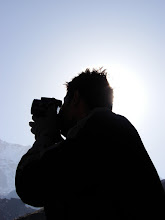Aspirin and Paracetamol are highly recommended for headaches because they also thin the blood, so improving circulation & oxygen delivery to the body.
Strong painkillers are not recommended as they can suppress respiration.
One high altitude problem which is not altitude illness is Cheynes Stokes Breathing, which involves waking up in night gasping for breath. Climbers should not panic about this, it is simply because slow breathing at rest is not able to pull in enough oxygen from the thin air. A period of panting should restore the climber to normality.
Another issue is frostbite. The summit ascent is the only real time that climbers may be at risk from the affects of severe cold. If you have two good pairs of gloves and a couple of chemical handwarmers, then you should have no problem. It is essential however that you make your guides aware of particularly cold hands and feet. We have had only one serious occurrence of frostbite, which occurred when the climber in question told his climbing colleagues that he had cold hands, but did not tell to the guides. As a result he lost three nails and parts of two fingers, all of which should have grown back. This serves as a sanguine reminder of how you should communicate and rely upon your guides.
Ladies please note that altitude may affect the menstrual cycle, so bring appropriate materials.
Contact lenses must be removed at night to allow eyes to absorb oxygen from the atmosphere. The rarefied conditions of altitude reduce oxygen levels and in extreme cases a Corneal Oedema can develop.
Wednesday, September 9, 2009
Subscribe to:
Post Comments (Atom)

No comments:
Post a Comment